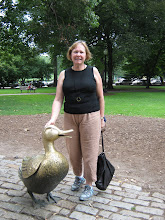In December 2016 the United Nations General Assembly adopted a resolution declaring 30 June Inter International Asteroid Day, in order to "observe each year at the international level, the anniversary of the Tunguska impact over Siberia, Russian Federation, on 30 June 1908, and to raise public awareness about the asteroid impact hazard."
An asteroid is a small rocky object that orbits the Sun. Asteroids are smaller than a planet, but they are larger than the pebble-size objects we call meteoroids. A meteor is what happens when a meteoroid – a small piece of an asteroid or comet – burns up upon entering Earth’s atmosphere, creating a streak of light in the sky.
Asteroids are smaller than a planet, but they are larger than the pebble-size objects we call meteoroids. Read more on NASA Science for kids here.
A meteor is an asteroid that attempts to land on Earth but is vaporised by the Earth’s atmosphere. Thousands of meteoroids enter the Earth’s atmosphere on a daily basis, but very few of them actually reach the surface; but when they do, they are called “meteorites.”
National Meteor Watch Day celebrated in the USA on this day, encourages people to look to the stars to witness one of the night sky's most thrilling sights.
I'm pleased this topic has come up, as it is a long time since I have had a good look at the nonfiction 'Space' books. No Prep grade studies space currently, but I do have a few children who are fascinated by space. They especially like the Stacy McAnulty Our Universe series.
McAnulty hasn't covered meteors or asteroids yet, but there are other books worth looking for.
Whether they appear as distant specks in an astronomer's telescope or shoot brilliantly across the evening sky, comets, meteors, and asteroids have fascinated sky gazers throughout history. But where do these racing celestial bodies come from, and what can they teach us about our universe Join Seymour Simon for a look at the fiery mystery and wild wonder of these luminous bodies of night. This nonfiction picture book is an excellent choice for children ages 6 to 8.
Ever seen a shooting star? Readers will become experts on meteors. This book surveys their origins, difference between meteors, meteorites, and meteoroids, and several other fascinating and far-out details.
Meteors by Melissa Stewart
Meteors by Melissa Stewart
Blast off on a trip to discover the fascinating world of meteors. In this image-packed book, kids will learn all about these objects hurtling through space-and into our atmosphere.
Look up into the sky during a meteor shower and what do you see? Many quick trails of light flash among the stars. Read this book to learn about the history of meteor shower discoveries and how technology helps scientists study meteor showers today.

Take your kids to the land of the unknown - the land of asteroids, comets and meteors. This book is definitely a key to your children's science learnings and satisfying their curiosity.

How Asteroids Shaped Earth by Jane P. Gardner

In Shooting Stars, early fluent readers will explore the science behind shooting stars and the differences between meteors and meteorites
Shooting stars are amazing bright streaks of light but there's more to them than meets the eye. Learn what causes shooting stars and when you're most likely to see these amazing sights of the sky
 Stars and Meteors by Baby Professor
Stars and Meteors by Baby Professor

The night sky is so beautiful, with its constellations and the occasional meteors passing too. Wouldn't it be great if your child sees these heavenly bodies for more than they are?








No comments:
Post a Comment